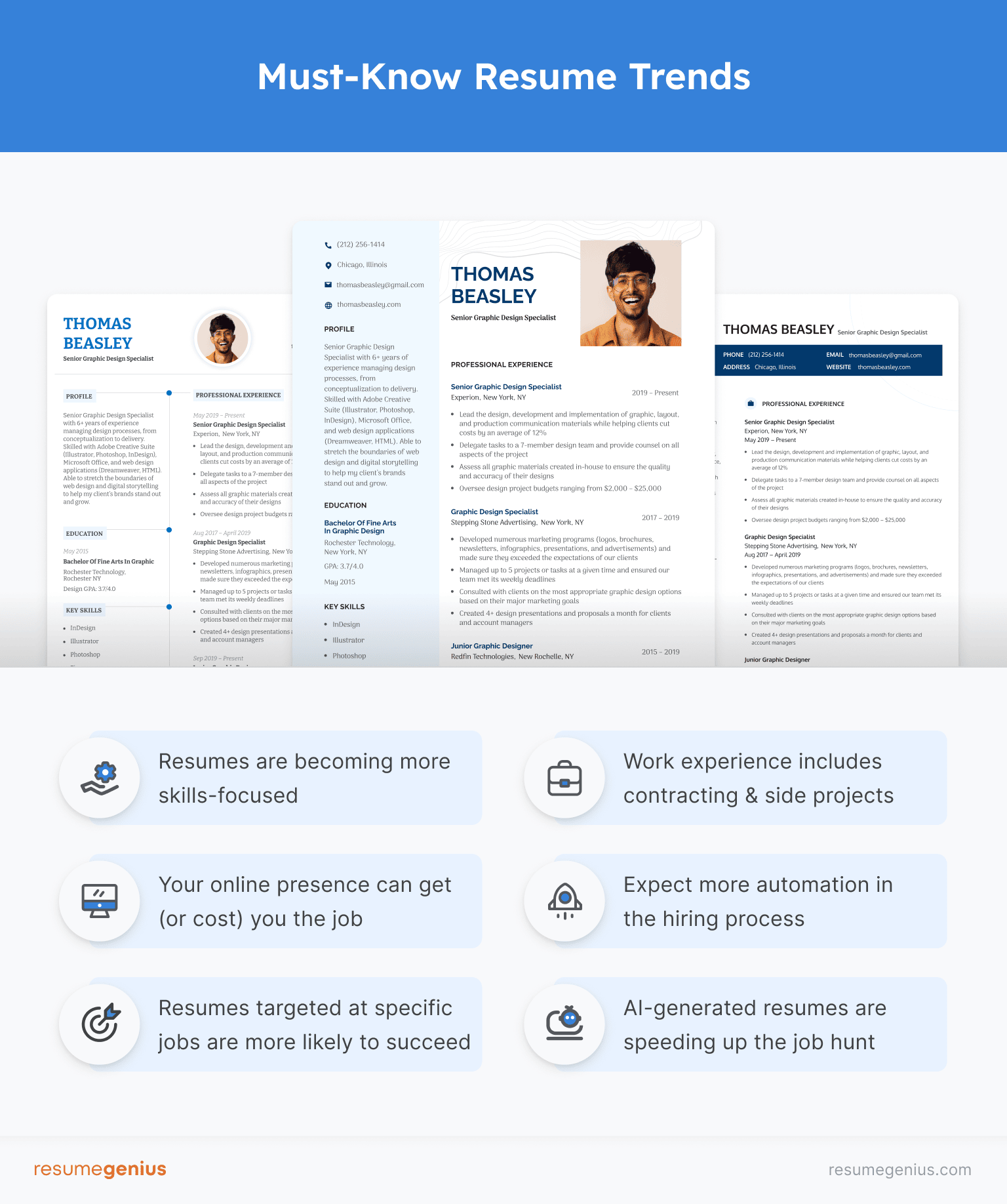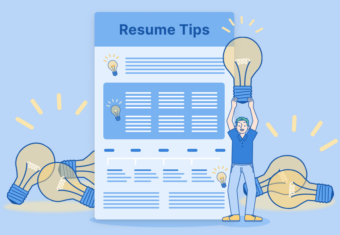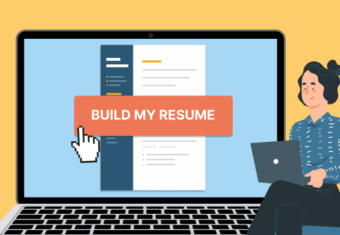There have been vast changes in the job market over the last couple of years. From shifts toward remote work to staggering numbers of resignations and tech layoffs, many of us are left wondering how it all affects the job application process.
Resumes are still essential to the job hunt. But as the world of recruitment and job searching evolves, so do the requirements of a successful resume.
Here are six current resume trends to follow in 2024:
1. Resumes are becoming more skills-focused
Rapid technological advancement and the resulting transformation of skills requirements in tech jobs have resulted in a widening digital skills gap.
As a result, employers are changing their recruitment strategies. Companies are focusing more on seeking candidates with the necessary hard and soft skills for long-term success in a role.
In fact, Resume Genius’s Hiring Trends Survey found that 65% of managers will hire you for your skills alone.
Candidates who use their resumes to effectively demonstrate their skills will have an edge over others applying for the same position.
Hard skills
Recruiters in many industries are having trouble finding candidates with the hard skills needed in today’s digital workplace. Skilled candidates are particularly sought-after in the sectors of artificial intelligence, machine learning, data science, cybersecurity, and digital marketing.
Employers recognize the importance of closing the skills gap. 64% of learning and development leaders say that the level of urgency to create learning programs for employees has risen significantly.
If you have marketable technical skills that match the job listing, feature these skills clearly on your resume so employers don’t miss them. Your hard skills are a critical part of what qualifies you for a position and help inform an employer’s decision to hire you or not.
Soft skills
Don’t have the technical skills for the job you want? You may still be okay, as recent research shows that 93% of hiring managers at large companies look for soft skills when screening applicants.
In the World Economic Forum’s 2023 Future of Jobs Report, organizations weighed in on which skills they expected to grow or decrease in importance from 2023 – 2027. Of the top five skills projected to become increasingly important, four were soft skills. These included:
- Creative thinking
- Analytical thinking
- Curiosity and lifelong learning
- Resilience, flexibility, and agility
So even if you don’t have the hard skills for a position, if you can write a resume that shows you have the right soft skills, you might still get the job offer.
2. Your online presence can get (or lose) you the job
With more and more people working online, it’s no surprise that your online presence can help (or hurt) your job hunt. To improve your chances of getting hired, make sure that you’re using digital tools to your advantage.
Social media
It’s increasingly common for employers to check social media, with 70% of companies reporting that they look up applicants’ profiles. What’s scarier – almost half of hiring managers say they’ve disqualified candidates because of social media.
These statistics make it clear that managing your online presence has a significant impact on your job search. Here are some tips for ensuring your profiles work in your favor:
- Remove anything you wouldn’t want employers to see, including any resume red flags.
- Optimize your LinkedIn profile and start posting content that builds your authority in your target role or industry.
- Add your resume to LinkedIn, making your professional information more accessible to recruiters and increasing the likelihood that they’ll reach out to you.
- Use social media to network and find more professional opportunities.
While LinkedIn is the most popular recruitment platform designed specifically for job hunters and employers, don’t neglect other social media channels. Recruiters commonly use Facebook, Instagram, and X, so it’s important to make sure your profiles don’t contain anything you wouldn’t want a potential employer to see.
Portfolios and websites
For jobs in creative or highly technical industries like design, photography, writing, or development, creating an online portfolio is an effective way to showcase your skills to potential employers.
Share your website or portfolio link on your social media profiles as well (especially on LinkedIn), so it’s easy to find.
3. Resumes targeted at specific jobs are more likely to succeed
With an incredibly competitive job market, it’s essential to tailor your resume to each job listing. Making one generic resume and sending it out to dozens of employers won’t show them how you’re uniquely qualified for the position they’re hiring for.
Instead, carefully examine job listings for important keywords to add on your resume. These are generally industry-specific skills and experiences employers are looking for on your application.
Additionally, try to include as many keywords as possible (without lying on your resume or stretching the truth) to show you’re well-equipped to succeed in the role.
Adapting your resume for different positions doesn’t have to be difficult or time-consuming, especially if you’re applying for similar types of jobs in the same industry. Simply replace any bullet points that aren’t relevant to the specific company, or adjust them so they focus on showcasing qualities the employer seeks.
Ida Pettersson, Career Expert at Resume Genius
Use each part of your resume to incorporate these keywords, including your:
4. Work experience includes contracting & side projects
Over the past few years, many workers were laid off or quit their jobs to pursue new opportunities, with an increase in freelancing and self-employment.
As a result, employers are seeing more of these types of experiences on resumes. With learning and development being prioritized by employers more than ever before, self-taught skills are valuable experiences to include on your resume.
Give these forms of experience the space and attention they deserve on your resume. List your freelance work or work you did while self-employed in the work experience section of your resume, as you would list experience for any other position. Employers will likely be impressed by your adaptability, initiative, and entrepreneurial spirit.
If you’ve taken courses and acquired new skills, you can list them specifically under a continuing education or professional development section. Including such information shows employers that you’re a motivated self-starter who is eager to learn and grow.
5. Expect more automation in the hiring process
Many industries have been undergoing rapid digitization, and recruiting is no different – technology, automation, and remote work practices are the biggest trends shaping hiring practices in 2024.
In addition, Applicant Tracking (ATS) Software is expected to experience sustained growth through 2029.
Job seekers must now contend with more automated platforms throughout the hiring process. Not just ATS, but even Candidate Relationship Management systems (CRMs), digital interviewing platforms, and chatbots.
Greater automation means you should make your resume as ATS-friendly as possible by using an easy-to-scan format (.docx or .pdf), because many recruiters will interact with your application through these systems.
Use a resume parser to check if your resume is ATS-compatible.
6. AI-generated resumes are speeding up the job hunt
With the development of AI and natural language processing tools like ChatGPT and Bard, it’s never been easier to create an AI-generated resume – and enthusiasm for this application is growing.
According to research from iCIMS, 47% of college seniors want to use AI to create their resumes, and 25% of Gen Z already do.
However, just because AI-generated resumes are trending doesn’t mean they’re a good idea.
A key finding from Resume Genius’s Hiring Trends Survey revealed that 53% of hiring managers voted “AI-generated content” as the biggest red flag that they have when reviewing a candidate’s resume.
There are some good reasons to avoid making your resume with AI (or at least to avoid relying on these tools too heavily), including a lack of personalization and the potential for false information.
If you’re using AI to generate your resume, it’s important to do it right. Here are a few tips for effectively using AI in the job application process:
- Provide the AI with an existing resume to improve upon, rather than asking it to write a resume from scratch, and ask it for ways you can strengthen your resume.
- Feed it specific resume bullet points and prompt it to suggest improvements or better ways you can quantify your accomplishments.
- Prompt it to compare your resume with the job listing to see how many keywords you included, and what you can do better highlighting.
- Leverage AI tools to help you with drafts, but make sure you’ve edited the final product so that it’s personalized, accurate, and clearly reads like you wrote it (not ChatGPT).
- Use AI to help you generate potential interview questions you might be asked, or to draft thoughtful questions you can ask your interviewer about the specific role.
Build your resume in minutes
Use an AI-powered resume builder and have your resume done in 10 minutes. Just select your template and our software will guide you through the process.
Sources
- Digital Journal, “Applicant Tracking (ATS) Software Market Share and Growth Trends 2022: Development Trends, Risk Factors, Demand by Key Players, Sales Channel, and Leading Players Forecast to 2029”
- HR Daily Advisor, “2024 Labor Market Outlook: Skills Shortages and Flexibility”
- LinkedIn Learning, “Leading with Learning: Insights and Advice on the New State of L&D”
- NetSuite, “17 Recruiting Trends That Are Shaping 2024”
- PR Newswire, “New iCIMS Research on the Class of 2023 Uncovers Economic Anxieties Reminiscent of the Early Aughts”
- Resume Genius, “Communication Named #1 Soft Skill in AI-Influenced Workplace”
- Resume Genius, “4 Reasons Why AI Isn’t the Solution to Your Resume Needs”
- Resume Genius, “7 Tips on Using Social Media in Your Job Search”
- Resume Genius, “US Tech Industry Totals 281,800+ Layoffs as 2024 Nears”
- UpWork, “Upwork Study Finds 64 Million Americans Freelanced in 2023, Adding $1.27 Trillion to U.S. Economy”
- World Economic Forum, “The Future of Jobs Report 2023”
About Resume Genius
Since 2009, Resume Genius has combined innovative technology with leading industry expertise to simplify the job hunt for people of all backgrounds and levels of experience.
Resume Genius’s easy-to-use resume builder and wide range of free career resources, including resume templates, cover letter samples, and resume writing guides, help job seekers find fulfilling work and reach their career goals. Resume Genius is led by a team of dedicated career advisors and HR experts and has been featured in The New York Times, Forbes, CNBC, and Business Insider.
For media inquiries, please contact us.















